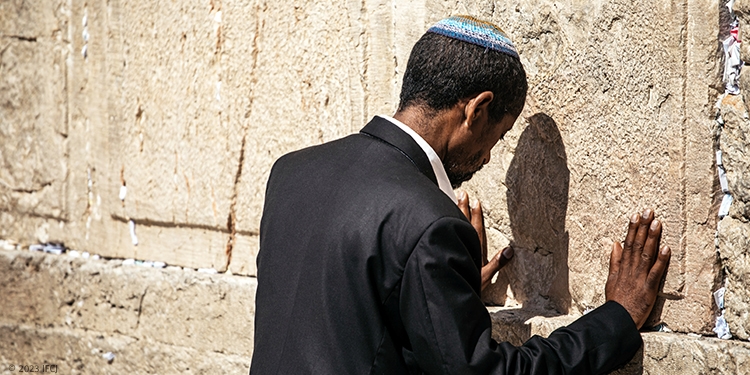The Right to Question God
Yael Eckstein | August 8, 2023

Then Abraham approached him and said: “Will you sweep away the righteous with the wicked? What if there are fifty righteous people in the city? Will you really sweep it away and not spare the place for the sake of the fifty righteous people in it?” — Genesis 18:23-24
Prayer in Judaism is defined as “the work of the heart,” which profoundly changes the nature of prayer from one of entreating God to an act that transforms who we are—not what God does. These devotions focus on different facets of prayer and what lessons we can learn about the power of our prayers.
We don’t have to look far to see suffering. The community bulletins, WhatsApp groups, and news sites are filled with reports of babies diagnosed with terminal diseases, children orphaned by car accidents, families destroyed by terrorist attacks. These heartbreaking stories are almost always followed by calls for prayer. Prayers for the wounded, for a miracle, for God’s comfort for those mourning the departed.
But sometimes, prayer can be difficult. Are we not praying to the very God that allowed these circumstances? Where is God in all this darkness? Does He even care? At times, we feel guilty for these “heretical” thoughts. Where is our faith in God’s endless love and ultimate justice?
The Right to Question God
It may be comforting to know that this doubt is deeply embedded within our spiritual DNA. When God announced His plans to destroy Sodom and Gomorrah, Abraham challenged Him: “Will you sweep away the righteous with the wicked? What if there are fifty righteous people in the city? Will you really sweep it away and not spare the place for the sake of the fifty righteous people in it?” (Genesis 18:23-24).
When God responds that He would spare the city for fifty innocent people, Abraham continues to bargain. What about forty? Thirty? Twenty? Ten? Each time, God concedes. He would spare the entire city for the sake of ten righteous people.
Through this exchange, God showed Abraham—and us—that we have the right, perhaps the obligation, to question God’s justice. Doubt is not a sign of weakness, but rather a sign of faith. We believe in God’s power, benevolence, and justice. Because of this, when we find ourselves perplexed, we turn to the very God we are questioning.
This act is testament to the depth of our relationship. Regardless of whether or not we get an answer or what that answer may be, we rise to the level of Abraham when we question God’s justice and pray on behalf of those suffering.
Your Turn:
When you doubt God’s justice, turn to Him with your questions and prayers.
